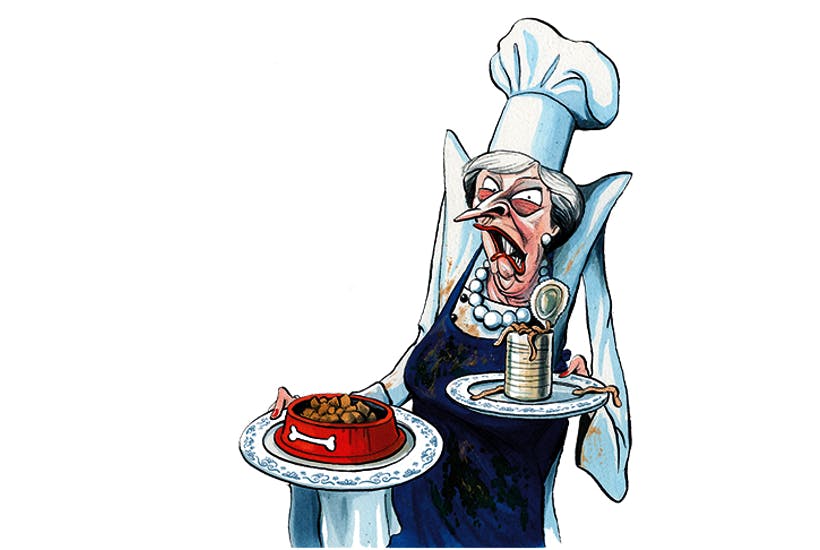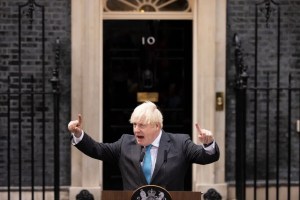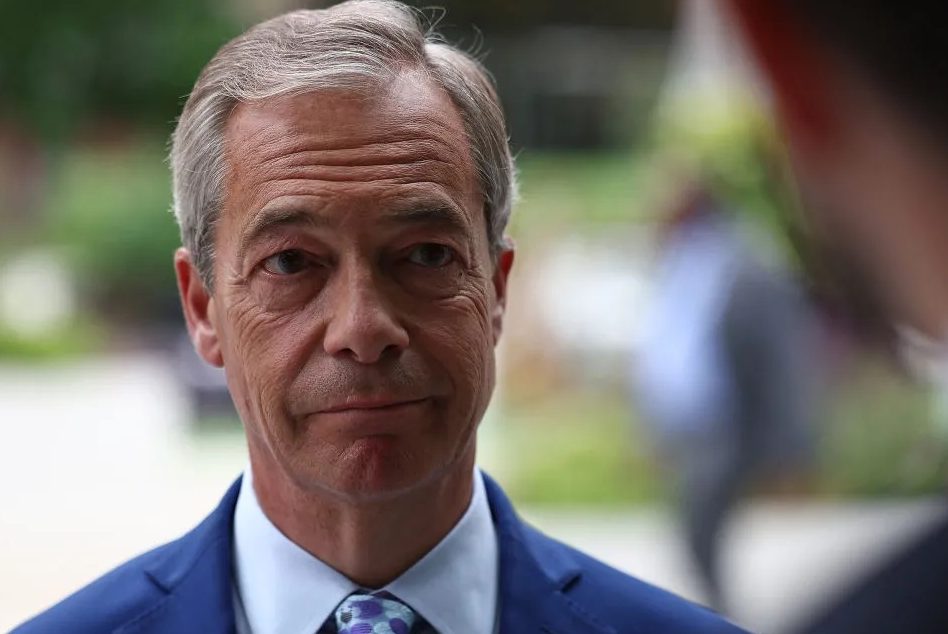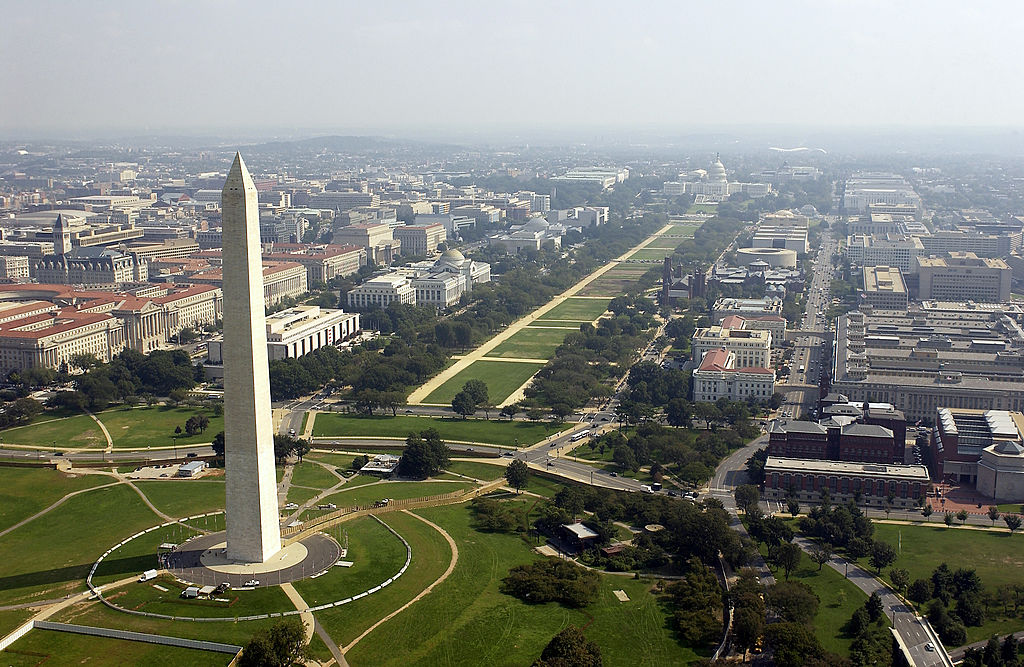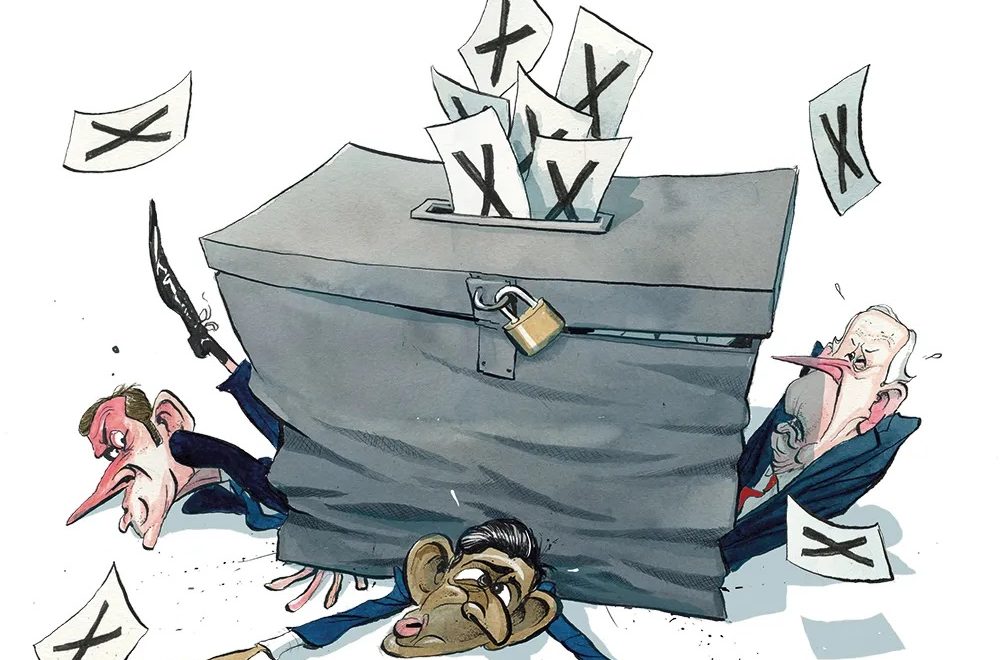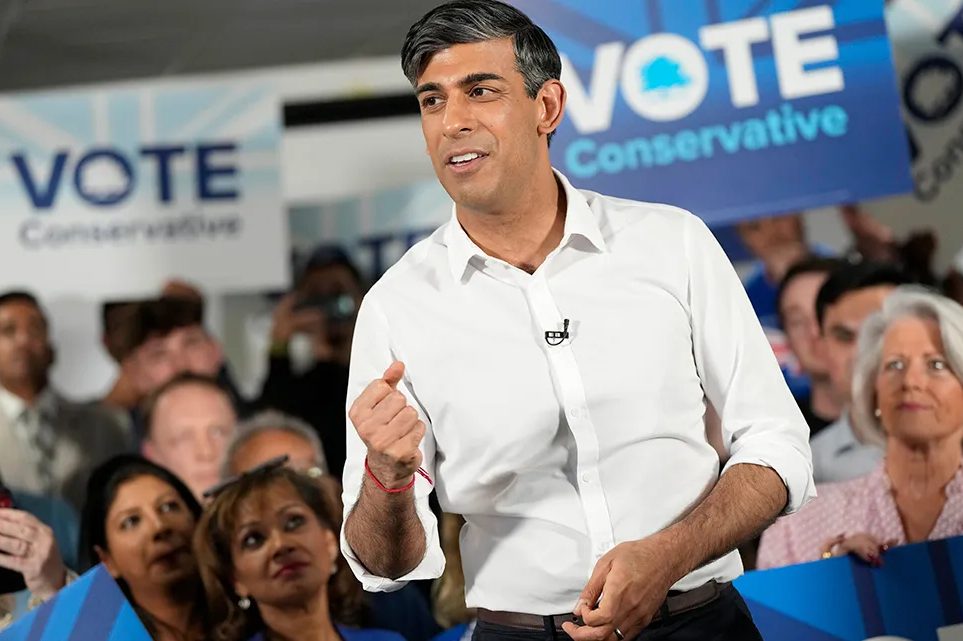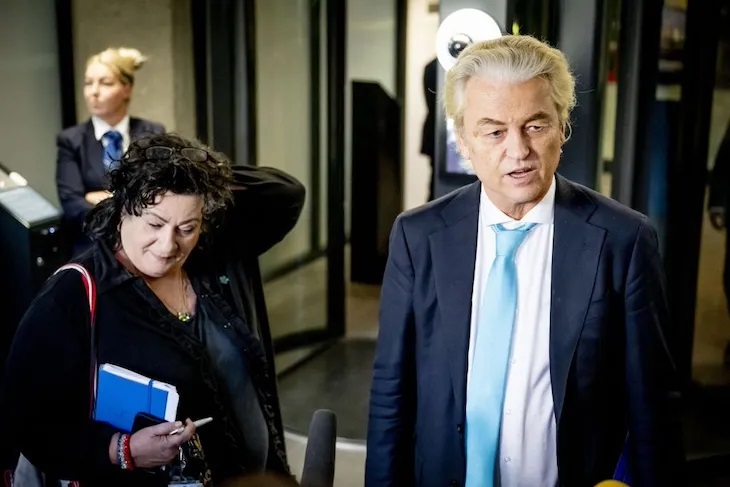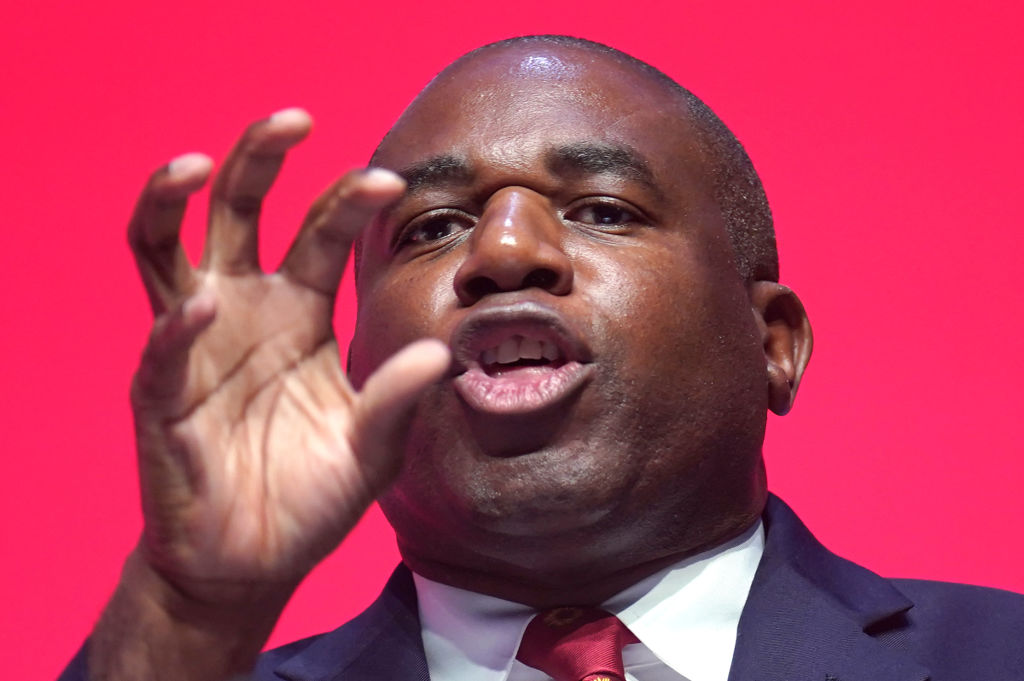The most important point about the draft Brexit withdrawal agreement is that, once it is ratified, the United Kingdom will have no legal route out of it unless the EU agrees to let us out and replace it with another agreement. This makes it unique among trade treaties (including the EU’s), which always contain clauses allowing each party to withdraw on notice. Politicians who claim that this is just a bad treaty — one we can get out of later — are being ignorant or disingenuous.
Halfway through the 585-page document, we find Art. 185, which states a Northern Ireland Protocol ‘shall apply as from the end of the transition period’. Once the Protocol is in force, the UK cannot leave it except by ‘joint’ decision of the UK and the EU. This gives the EU a right of veto over the UK’s exit. In agreeing to this clause, the government has caved in over seeking a right to leave.
Indeed, the Protocol — which has become known as the ‘backstop’ — locks the whole UK into a customs union with the EU with no decision-making power. Annex 2 Art. 3(4) states that the UK shall be ‘informed’ of any decision by the EU to amend the Common Customs Tariff ‘in sufficient time for it to align itself with that decision’.
The EU has a huge (£95 billion) surplus in goods trade with the UK. This customs union gives the EU tariff-free access for its export goods into the UK market. It also forces the UK to maintain the EU’s high tariffs against competing goods from other countries. As one might expect, this is advantageous to EU exporters but catastrophically damaging to the UK. It prevents us from lowering tariffs if we want to in order to benefit our consumers. More importantly, it kills stone dead the possibility of forging trade deals with fast-growing economies around the world. They are not going to give us free trade in our services exports if we can’t offer concessions in return on their goods exports to us.
And since the EU can just sit back and force the UK into these terms by default, why on earth should it give us a better offer — namely the long-term trade deal that the government is banking on?
The government has negotiated a ‘political’ (i.e. not legally binding) declaration about the future relationship. This is thin gruel with only the barest outline of possible terms. Only three pages deal with trade. These talk of zero tariffs between the EU and UK, but notably omit any commitment by the EU that the deal would allow the UK to set its own external tariffs, as in a Canada-style Free Trade Agreement, or even under the Prime Minister’s Chequers dual tariff customs plan — which she has repeatedly claimed would allow the UK to conduct an independent trade policy.
On the contrary, the declaration states that there will be ‘customs arrangements that build on the single customs territory provided for in the Withdrawal Agreement’. This means that the EU will not even be under a moral, still less legal, obligation to agree a trade deal which allows the UK to conduct its own future independent trade policy.
Art. 184 says that the EU and the UK shall use their ‘best endeavors’ to negotiate a trade agreement in time for the end of the transition. The Conservative party chairman claims that this is ‘a high legal bar’ for the EU. But an obligation to try to agree is completely non-justiciable: you cannot pin the blame on either party if each pursues its own interests and a deal is not reached.
So the EU can easily slow down the negotiations — or just not agree to the kind of deal the UK wants. The UK will then be forced into the so-called backstop. Not only would this mean a customs union and onerous ‘level-playing-field’ obligations binding the whole UK, but also the annexation of Northern Ireland into the EU for laws relating to goods, customs procedures and taxes. The list of EU laws which will continue to apply runs to 68 pages alone — and that’s just the titles. Neither the UK Parliament nor the Northern Ireland Assembly would have any say over these laws or over changes to them by the EU in future.
The ‘transition’ period would see most EU laws continuing to apply in the UK, enforced as now by the Commission and adjudicated by the ECJ. The difference will be that under Art. 7 the UK is excluded from ‘the nomination, appointment or election of members of the institutions, bodies, offices and agencies of the Union, as well as the participation in the decision-making and the attendance in the meetings of the institutions’. This is true vassalage, during which we will be required to abide by laws which we have no vote in shaping. There are no legally effective safeguards in the Agreement against the EU making changes to its laws which actively damage vital UK industries such as financial services.
The transition period was supposed to end in 2020, but the Prime Minister now envisages extending it to 2022. Art. 132 actually says that it can be extended up to ‘31 December 20XX’. The likely extension of the transition coupled with the very thin political declaration means that it could run indefinitely, prolonging the turmoil of the past 18 months and uncertainty about the future. During all this time we would be bound by EU law; our fishing industry subject to EU boats in our waters and quotas and rules imposed by Brussels.
The second big legal point about this draft treaty is that the European Court of Justice, whose influence Brexit was supposed to end, is given wide-ranging jurisdiction over the UK, not just during the ‘transition’ but afterwards as well. Once we leave the EU, the ECJ will cease to be a multi-national court in which the UK is a participating member and will become an entirely foreign court. So why should the ECJ’s writ still run? Sovereign states generally never agree to be bound by the courts of the other treaty party. This is dictated by legal protocol and common sense. Even the agreements between the EU and the tiny landlocked states of Andorra and San Marino contain conventional bilateral arbitration clauses.
But not this agreement. A supposedly neutral ‘arbitration panel’ has been set up to decide general disputes between the UK and EU. But under Art. 175, disputed questions of EU law will be decided not by the panel but by the ECJ — and the panel will be bound by the ECJ’s ruling. So the ‘independent’ panel will simply act as a postbox for sending the dispute to the ECJ. And as a rubber stamp when the answer comes back.
This vassalage that the UK government now seeks is rare, but not unheard of. It is the system imposed on the former Soviet republics of Moldova, Georgia and Ukraine in their EU association agreements. What will the world make of Britain agreeing to such debasement? Carl Baudenbacher is a Swiss jurist who until recently was president of the Court of Justice of the European Free Trade Association States. He knows better than most how the EU system works and says, ‘This is not a real arbitration tribunal. Behind it, the ECJ decides everything. This is taken from the Ukraine agreement. It is absolutely unbelievable that a country like the UK, which was the first country to accept independent courts, would subject itself to this.’
Why is the Prime Minister so desperate for a deal that she is willing to humiliate her country in this way? This draft agreement will not take us closer to an acceptable final deal with the EU. Instead, it locks us down by throwing away in advance our two strongest negotiation cards: EU budget payments of £39 billion and the future access to our market for EU goods.
At present, the EU treaties give us the right to withdraw on two years’ notice — a right we are currently exercising. But this new deal would lock us in with no right to leave at all, and destroy any benefits of the freedom of action which Brexit should give us. It would not let us forge our own trade policy with other parts of the world. It would not make our economy more competitive. It would not give us back control of our laws. This is not a bad deal. It is an atrocious deal.
This article was originally published in The Spectator magazine.



